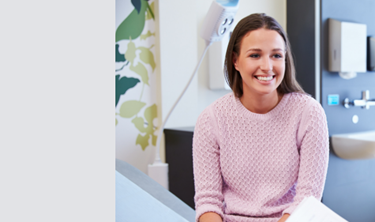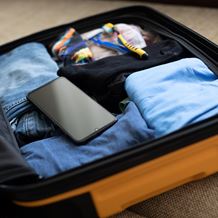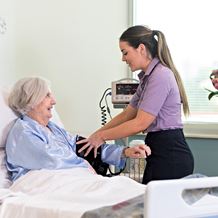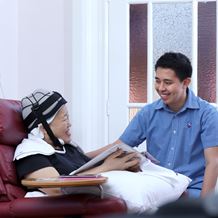Getting ready
Getting ready
Preparing to leave hospital
We want to help ensure that your transition from hospital is smooth and safe. Preparing to leave hospital – also known as discharge planning – begins when you’re admitted to hospital. It helps to ensure that you and your family have all the information you need to leave hospital safely and confidently.
Discharge
If you haven’t made any discharge arrangements, please ask your nurse to contact a member of the discharge planning team for assistance.
Discharge care plan
Before you leave hospital you will receive a discharge care plan from your nurse. This includes:
- An evaluation of your condition by your health care team
- A plan for going home or transfer to another health care facility. This may include prescriptions for your medications and a referral letter to your general practitoner
- Our recommendations for any extra support you will need at home, and whether your carer/family knows how to care for you
- Referrals for home care and other community health care support you may need
- Arrangements for follow-up appointments and tests
We’ll talk to you about your discharge care plan and answer any questions or concerns you and/or your family may have. We’ll also provide you with written discharge instructions.
Before you’re discharged, make sure that you feel confident with how to manage your wound, showering, taking medications, and any other home-care instructions.
Discharge time
If you stay overnight in hospital, your expected discharge time is between 9.30am and 10:00am. Our nursing staff will let you know when you are ready to be discharged.
After surgery, you should rest for at least 12 to 24 hours (or longer, depending on your discharge advice) and arrange for someone to stay with you in case you require assistance.
If you’ve had a general anaesthetic or sedation, please don’t operate complex or dangerous equipment, such as a motor vehicle, or make any important decisions for 24 hours.
Self discharge
You’re allowed to legally discharge yourself at any time, even against the advice of your doctor or hospital staff. However, if you do so, you must accept the associated risks and sign a form taking responsibility for your actions before leaving the hospital.
Discharge Checklist
On discharge day, please remember to take with you the following, where applicable:
- X-rays, scans and ultrasound films
- Details of your next appointment
- Any medication which was brought into hospital, as well as any new treatment
- A letter for community services
- A nursing discharge summary
- Personal items from your room
- All prescribed medications collected from pharmacy

Going Home
Transport home
Before discharge day, make sure that your transport home is arranged. If you’re unable to manage your own transport, please tell the nursing staff in advance. They can discuss alternative options with you.
Coping at home
When you get home you may be tired for several days, even after minor surgery. If you’ve had an operation and have limited movement, you will need to plan ahead to fill your fridge, prepare meals, and shower and dress yourself.

Rehabilitation
Our rehabilitation services aim to help you regain independence and restore physical strength, mobility and function. We actively work with you to develop goals and a rehabilitation plan designed to support your individual needs. These include day programs and overnight programs.
Read more about our rehabilitation services








